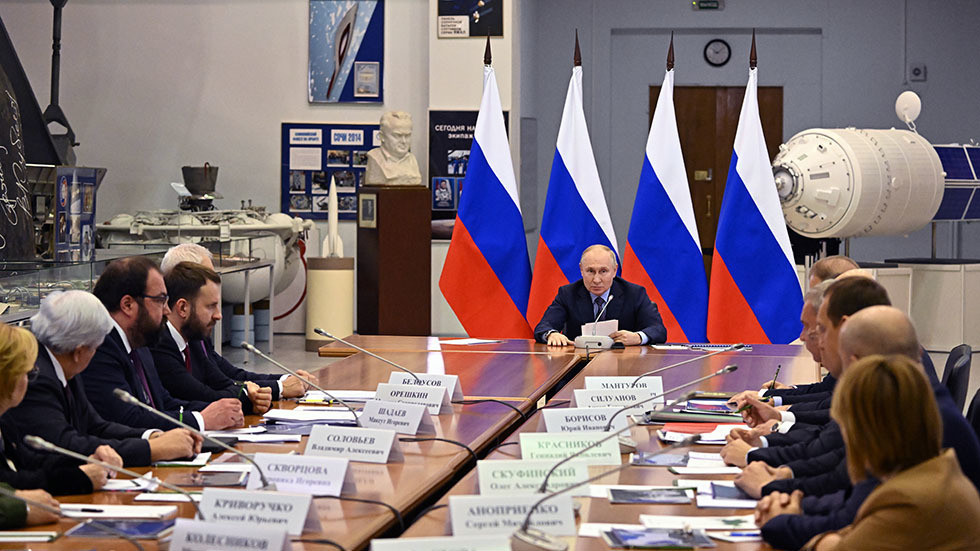
Roscosmos is investigating the possibility of building a nuclear power plant on the Moon in cooperation with China
FILE PHOTO. Russian President Vladimir Putin holds a meeting on the development of Russia’s space industry. © Sputnik
Russian President Vladimir Putin has instructed the country’s authorities to allocate funds for projects that would allow the country to create nuclear energy facilities in space.
In a statement on Wednesday, the Kremlin said Putin had ordered the national government to provide funding for the implementation of a project called the Development of Russia’s Space Nuclear Energy Field.
The funding campaign should start as early as this year, and the overall effort would be supported by Roscosmos, the national space agency, and Rosatom, the state energy corporation.
Putin has also urged the government to pay special attention to “measures to further advance the already existing scientific and technological capabilities in the field of space nuclear energy.” The deadline for completing the task has been set for mid-June.
Read more
In March, Putin told government officials to prioritize the space sphere, especially when it comes to building a nuclear power plant, noting that Moscow has “good competencies” in this area, of which it can be truly proud.
Earlier that month, the head of Roscosmos, Yury Borisov, said Russia and China had been looking into the possibility of deploying a nuclear power unit to the Moon by 2035. He added that scientists had solved almost all of the technical challenges involved in this feat.
In December, Borisov also claimed that Russia had “a head start” in relation to the development of a nuclear-powered space transport module, describing the project as “groundbreaking.”
Moscow and Beijing have intensified space cooperation in recent years. In December 2022, the two powers prepared an agreement on building the International Lunar Research Station, a project open to other countries and expected to be launched in the early 2030s.
Meanwhile, the head of the US Space Command, General Stephen Whiting, warned earlier this week that Russia and China were rapidly developing space capabilities that could pose a significant threat to Western assets in orbit.
It came after the US accused Russia of having plans to deploy anti-satellite nuclear capabilities in space. Moscow has dismissed these allegations as “unfounded,” suggesting that they had sought to lure Russia into arms-control talks on Washington’s terms.




